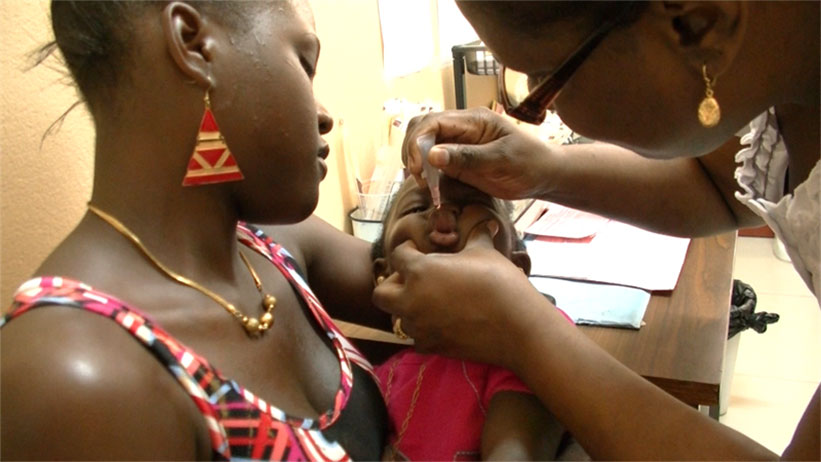Caribbean health authorities observed Vaccination Week 2016 with a slate of activities.
Health authorities in Latin America and the Caribbean are urging people to clean up potential mosquito breeding sites in and around their homes to prevent the spread of zika and other mosquito-borne diseases.
The focus on mosquito control reflects concern over the rapid spread of zika to countries and territories throughout the Americas and the fact that there is currently no vaccine against the disease.
In commemoration of Vaccination Week, Saint Lucia organized community clean-up campaigns to reduce vector breeding sites.
Sint Maarten sponsored health information sessions on vector control for children 17 and under, and Barbados and Trinidad and Tobago disseminated information on the prevention and control of mosquito-borne diseases in general.
In the wider Caribbean, Bolivia intensified its surveillance of measles, rubella and acute flaccid paralysis in areas where zika is circulating, while in El Salvador, health authorities carried out fumigation. Haiti urged its population to prevent and destroy mosquito breeding sites, and advised women in particular, how to protect themselves against mosquito bites.
“Given the number of mosquito-borne disease outbreaks, namely zika, dengue and chikungunya, many countries took advantage of Vaccination Week in the Americas to share information on personal protection and vector-control activities,” said Carissa F. Etienne, Director of the Pan American Health Organization (PAHO). PAHO coordinated Vaccination Week, the largest international health initiative in the Americas.
Aedes mosquitoes are well adapted to human settlements, preferring to breed in clean water that collects in man-made recipients such as bottles, cans, plastic containers and discarded tires. Successfully eliminating these potential breeding sites requires the active participation of families and communities in environmental clean-up efforts.
PAHO has developed recommendations for preventing and eliminating Aedes breeding sites. The recommendations urge individuals, families and communities to ensure all tanks, water deposits and containers are covered and sealed to keep out mosquitoes; change the water and brush the insides of sinks and water barrels at least once a week; change water in flower vases and pet bowls weekly; safely dispose of unused containers that can collect water and serve as breeding sites; turn over any containers that cannot be thrown away and protect them from rain; pour out water from flower pots and planters and replace with damp sand, keep swimming pools treated according to recommendations; clean all drains and gutters; keep grass short and weed-free, and keep patios clean.
In addition to mosquito-control efforts, at least 21 countries promoted complementary prevention activities during Vaccination Week. The activities include de-worming, vitamin A supplementation, distribution of oral rehydration therapy, chronic disease and obesity screening, prenatal checks, dental health activities, childhood growth and development screening, work, wellness and school health programming, and the vaccination of pets.
Vaccination Week was held from April 23 to May 2.





